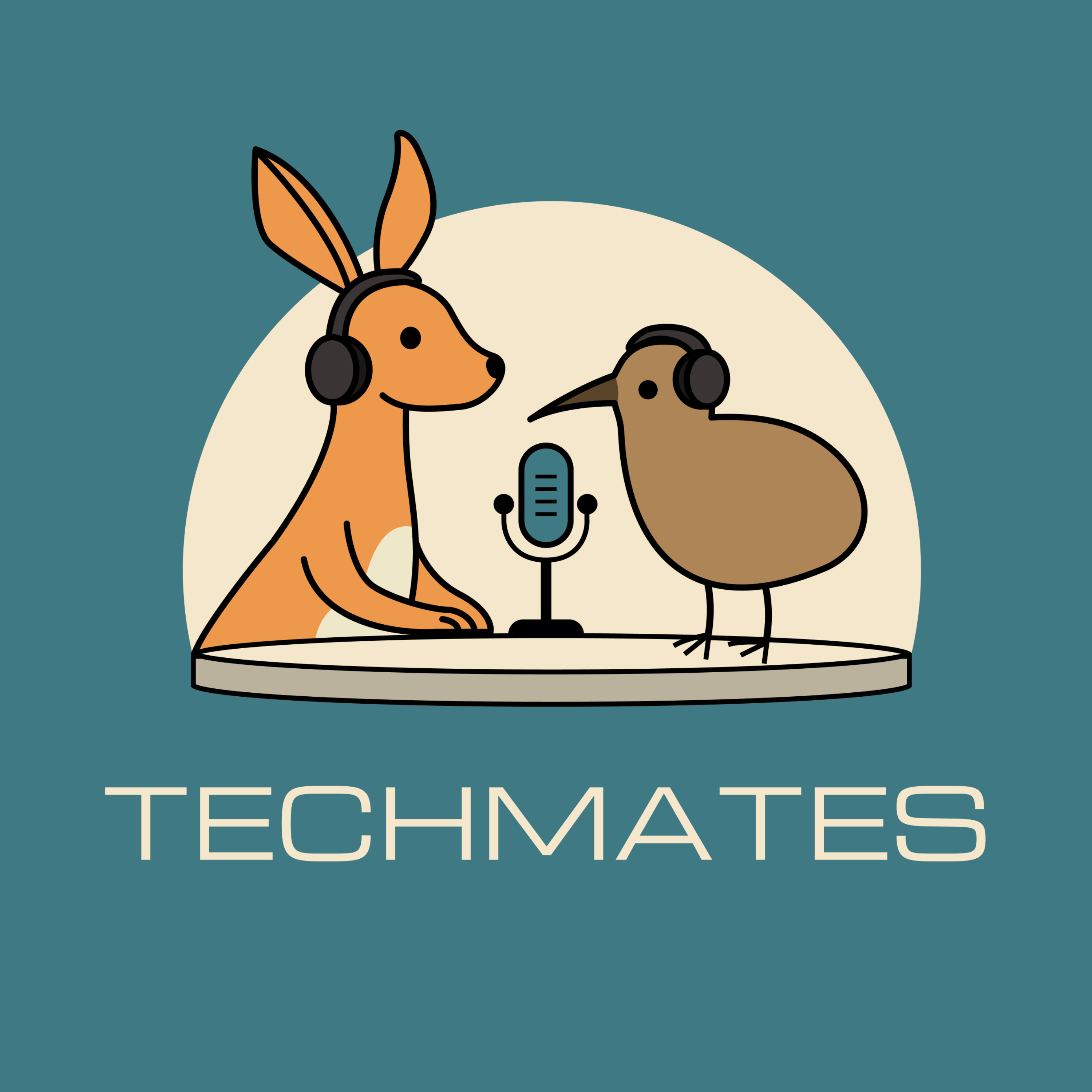TechMates

TechMates
Podcast Description
Welcome to TechMates, the podcast where we spotlight the trailblazing founders and game-changing startups transforming Australasia.
Hosted by Mark Pavlyukovskyy, a Silicon Valley success story, and Hendrik Remigereau, a former leader in Europe’s largest AI ecosystem turned venture capitalist, TechMates dives deep into the counterintuitive mindsets and bold strategies that drive extraordinary achievements.
From tackling challenges with innovation to turning skeptics into believers, we uncover the untold stories behind the visionaries daring to disrupt the status quo.
Join us for fresh perspe
Podcast Insights
Content Themes
The podcast centers on various themes including entrepreneurial journeys, transformative technologies, and industry disruptions. Episodes cover topics such as space tech innovations, fintech challenges in New Zealand, the importance of relationship management apps, sustainable material developments, and advancements in accessibility technology. Examples include how a Soviet space monument inspired a startup and the creation of an app to enhance couple's time management in modern life.

Welcome to TechMates, the podcast where we spotlight the trailblazing founders and game-changing startups transforming Australasia.
Hosted by Mark Pavlyukovskyy, a Silicon Valley success story, and Hendrik Remigereau, a former leader in Europe’s largest AI ecosystem turned venture capitalist, TechMates dives deep into the counterintuitive mindsets and bold strategies that drive extraordinary achievements.
Powered by NZVC, the venture firm backing the next generation of iconic companies from New Zealand and beyond, TechMates offers fresh perspectives on the people and ideas shaping the future
What happens when you put a crypto veteran, a Xero co-founder, and a high-stakes lawyer on stage with a robot dog to debate the future of AI? In this special panel from NZVC Portfolio Day, we dive into the ”Agentic Future” with three experts operating at very different layers of the AI stack. We are joined by Bradley So (Principal at QCL), who is disrupting the legal billable hour; Philip Fierlinger (Co-founder of Xero and Upstock), who is automating supply chains; and Lane Rettig (Core Dev at NEAR Foundation), who is building the decentralized infrastructure to power it all. From the ”Minder, Finder, Grinder” theory of legal work to the 30-year journey of ”AI Agents” starting at General Magic in 1992, this conversation cuts through the hype. The panelists debate whether AI is a job-killer or a productivity multiplier, the critical need for community-governed data sovereignty, and why New Zealand’s ”scrappy” generalist mindset might be its biggest superpower in the AI era. 🤖 Robot Dogs & Real Tech: Kicking off with live robotics on stage ⚖️ Legal Disruption: Moving from ”time billing” to ”value billing” with AI 🛒 Supply Chain Agents: Turning messy emails into structured orders in one click ⛓️ Crypto x AI: Why we need community-governed AI infrastructure 📉 Job Market Myths: Why radiologists (and lawyers) are earning more with AI 🥝 The Kiwi Advantage: Why New Zealand is perfectly positioned for the AI revolution Connect with the Guests:Philip Fierlinger (Upstock): https://www.linkedin.com/in/fierlinger/Lane Rettig (NEAR Foundation): https://www.linkedin.com/in/lane-rettig-32904b227/Bradley So (QCL): https://www.linkedin.com/in/bradley-so-11042424/Connect with NZVC & Hosts: 🔗Website: https://www.nzvc.co.nz Mark Pavlyukovskyy – https://www.linkedin.com/in/pavlyukovskyy/Hendrik Remigereau – https://www.linkedin.com/in/hendrik-remigereau-09a03067/Timestamps:00:00 – Introduction01:48 – Bradley So: AI Disrupting the Legal Industry 07:23 – Philip Fierlinger: From General Magic to Upstock 09:12 – Lane Rettig: NEAR Protocol & AI Infrastructure 14:13 – Is the Future Utopian or Dystopian? 18:14 – Will Lawyers Lose Their Jobs? (Minder, Finder, Grinder) 22:31 – How Upstock Uses AI for Supply Chain 27:27 – How Far Away Are True Autonomous Agents? 32:12 – Are Startups Hiring Less Because of AI? If you enjoyed this deep dive into the future of AI and business, please hit the Like button, Comment with your thoughts on AI agents, and Subscribe for more insights from world-class founders!#startups, #AI, #NewZealand, #artificialintelligence, #business, #tech, #legaltech, #crypto, #NEARProtocol, #Xero, #Upstock, #entrepreneurship, #futureofwork, #venturecapital, #NZVC, #innovation, #SaaS, #blockchain, #technology, #TechMates

Disclaimer
This podcast’s information is provided for general reference and was obtained from publicly accessible sources. The Podcast Collaborative neither produces nor verifies the content, accuracy, or suitability of this podcast. Views and opinions belong solely to the podcast creators and guests.
For a complete disclaimer, please see our Full Disclaimer on the archive page. The Podcast Collaborative bears no responsibility for the podcast’s themes, language, or overall content. Listener discretion is advised. Read our Terms of Use and Privacy Policy for more details.